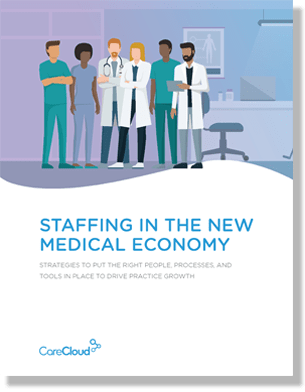The healthcare industry is buzzing about meaningful use and the impending change to electronic health records (EHR). As practices and hospitals scramble to implement their EHR systems to qualify for the meaningful use incentive money, some very real concerns have arisen for early adopters.
While the $44,000 Medicare and $63,750 Medicaid meaningful use incentives are a driving force for early adoption, they should not be the primary reason to switch. The ultimate goal is to improve patient care.
Stage 1 meaningful use attestation has already begun in 11 states that already have the incentive program up and running, but many experts agree that practices should not rush into buying an EHR system.
Why Wait?
One of the main reasons experts suggest waiting is that after a doctor qualifies for stage 1, he or she has one year to qualify for stage 2, which may be difficult since stage 2 requirements have not yet been clearly defined by the Centers for Medicare & Medicaid Services (CMS).
Doctors can wait until the end of 2012 to attest and still qualify for the maximum amount available, allowing time for the CMS to develop and release the stage 2 requirements.
Until the second set of requirements are released, it’s a guessing game as to whether current EHR software will be equipped to make the change or will require complicated and expensive add-ons and upgrades.
What Comes Next?
The EHR space is exploding, but like many new technologies, several companies are rushing to market and putting out inferior products to capitalize on the buzz. This could end up costing practices much more than the incentives will cover in the long run.
“Large short-term profitability, but lacking a path to the future will be a common story looking back at current companies in health care tech that failed to see what’s coming,” suggests Aaron Blackledge, M.D., ?Care Practice? Founder.
Dr. Blackledge is a tech-savvy doctor who has done extensive research into healthcare technology and sees the potential in emerging systems, but realizes the pitfalls of rushing into a decision.
“We are paperless at Care Practice and do use an EMR with every encounter,” says Dr. Blackledge. “But the software we are using at the moment is not particularly important because I am hopeful that it will be completely different within the next year as the space begins to take shape and the platform of the future emerges.”
How to Choose Your EHR
Without knowing what the future holds for meaningful use requirements, it’s best to start looking for an EHR system that will meet the needs of your practice, your patients and have the flexibility to meet the future requirements of CMS’s stage 2 of meaningful use.
Before you sign up for an expensive software system that locks you into a 5-year contract, see what other systems are available. Healthcare IT changes rapidly and you don’t want to spend big bucks on something that will be outdated in a few months.
“My recommendation is if you are about to give up and lay down some hard earned cash on an EMR that is just good enough, I would urge you to wait a few more months,” suggests Dr. Blackledge.
Timing is everything when it comes to new technology. Will your EHR system easily adapt to new meaningful use requirements? Will it be able to expand with your practice? Will it be functional on new technologies like the iPad?
Don’t rush into an expensive commitment without knowing the answers to these questions. You’ve got time; use it to make the best decision for you, your patients and your practice.
Have you implemented an EHR system yet? What advice do you have for practices looking to make the switch?




